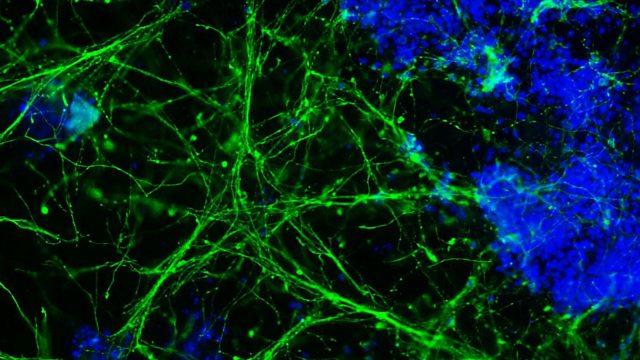
16/04/2013
Adam Walton meets Welsh scientists developing revolutionary new materials, from bulletproof ceramics, to containers that store nuclear waste for millennia without corroding.
Last on
Materials Science
This week Adam Walton delves into the material world. He talks to Welsh scientists using cutting-edge techniques to develop three very different types of materials; a hydrogel to grow stem cells, a听ceramic body armour and materials that are as corrosion proof as you can get.听
听
Adam's journey begins at Manchester听University's Materials Science Centre and the laboratories of the Stem Cell Glycobiology Group. This is听where they're using new听hydrogels to encourage the growth of stem cells. The Welsh connection in听this lab is research Associate Emma Lowe who has worked with head of group, Dr Cathy Merry, to develop a microscopic, sugar-coated scaffolding that听facilitates potentially life-saving stem cell therapies.听听
听
Then it's time to talk about another material which is a life-saver, but in a rather different context. Dr Hywel Jones of Sheffield Hallam University's Materials and Engineeering Research Institute is developing a听 low-cost, environmentally-friendly body armour, using ceramics.听This new ceramic is more flexible than previous materials and, cruicially, more lightweight.听
听
Back at Manchester's University's School of Materials, another expatriate Welshman, Dr Tony Cross is exploring ways we can slow down corrosion, particularly in containers for nuclear materials. He has studied听the many ways different materials react to听 high-temperature, water and time.听But understanding what happens, preventative measures can prolong the life of most materials.
听
Links
Manchester University Stem Cell Glycobiology Group
听
听听
Broadcasts
- Tue 16 Apr 2013 18:30麻豆社 Radio Wales
- Sun 21 Apr 2013 06:30麻豆社 Radio Wales

